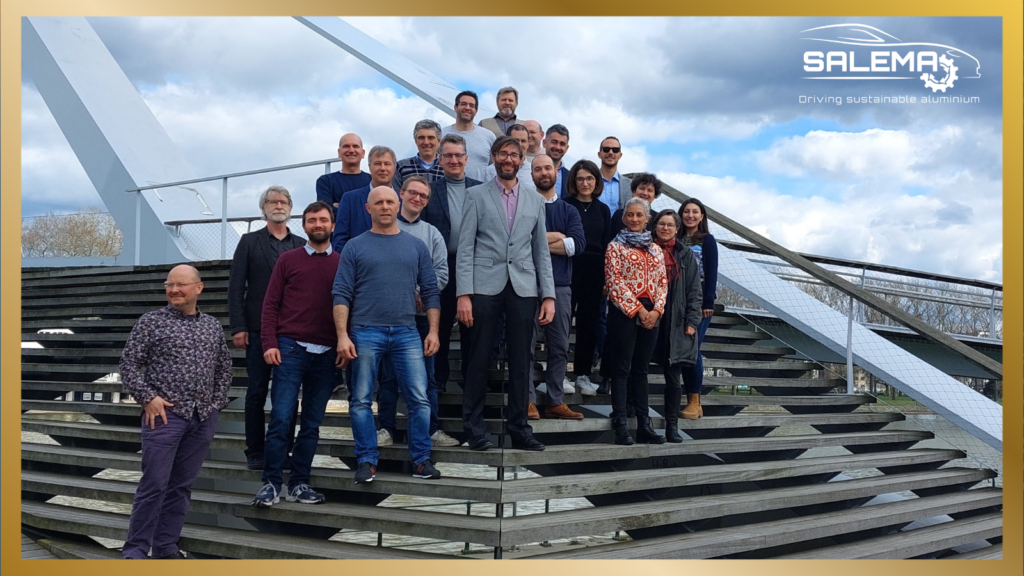
The SALEMA consortium signs off...
How can Europe reduce imports of critical raw materials (CRM) used in high-quality aluminium for automotive, while meeting increasing demand for the lightweight metal? How can we better select scrap of the right quality to use in recycled aluminium, and ensure it performs as required for use in electric vehicles? The EU-funded SALEMA project, which concluded on 30 April 2024, gathered research and industrial partners from across the aluminium value chain to improve scrap sorting technology, design and create new high recycled content or low CRM alloys, and validate them by creating car parts using standard industrial processes.
This strategy demonstrated the feasibility of closing the loop in high-quality aluminium alloy processing to create a circular economy. This proof of concept for aluminium and car manufacturing opens a new era of more sustainable aluminium.
SALEMA’s approach and achievements also ultimately support Europe’s goals to reduce imported primary and critical raw materials use and to reduce future mobility and industry environmental impacts.
Among the achievements SALEMA made in its three-year lifetime are:
- A new alloy ‘design’ methodology that can be applied for other metals and industries.
- An innovative AI algorithm and novel use of ‘LIBS’ (laser-induce breakdown spectroscopy) for multi-sensor robotic scrap sorting for improved recycling;
- New alloys suitable for standard industrial processes and the creation of demonstrator car parts that meet strength and other quality requirements.
Beyond SALEMA
These developments will continue to have an impact beyond the lifespan of the project.
For example, SALEMA’s alloy design approach will become part of the curriculum for engineering and metallurgy students at the University of Padova, where Professor Franco Bonollo led this part of the project’s work.
Also, project investigations into the properties of aluminium alloys in terms of their suitability for specific industrial processes have spun off too. A collaboration with the European Committee for Standardization (CEN), under the auspices of SALEMA partner UNE, saw a CEN–SALEMA workshop in February which has led to the definition of a new European standard—on assessing the flowability of aluminium alloys in high-pressure die casting, to be confirmed soon.
SALEMA’s work to improve recycling—in particular the use of LIBS and AI trained to rapidly identifiy specific types of aluminium on a scrapyard conveyor belt and direct a team of robots to select them—has arguably raised the most interest.
During the project’s final event, held in AutoWorld museum in Brussels on 21 March 2024, Robert Baudinet of University of Liège and Gregory Lewis of COMET Traitement explained their technological developments and fielded several questions. Commenting on these developments in two short interviews at the event, Martin Tauber, the European Representative of the International Magnesium Association and President of the Critical Raw Materials Alliance, recognised the potential for the magnesium industry as well as for aluminium. And Professor Geoff Scamans, of Brunel University and Innoval Technology, described the sorting system as a step change.
“If it can be demonstrated that, using this process, you can sort scrap at rates of 100 tonnes per hour, if that’s possible, that will be a big breakthrough.” Prof. Geoff Scamans
Stay in touch!
Representatives of six of SALEMA’s 16 partner organisations will present the project results in a special SALEMA session at E-TECH Europe in Bologna on 8 May 2024. Anyone attending the congress who wishes to pre-register is invited to sign up.
The SALEMA interviews, factsheets, infographics, project reports and other content about the project activities, results, benefits and relevant partner contact details are available via the SALEMA website.